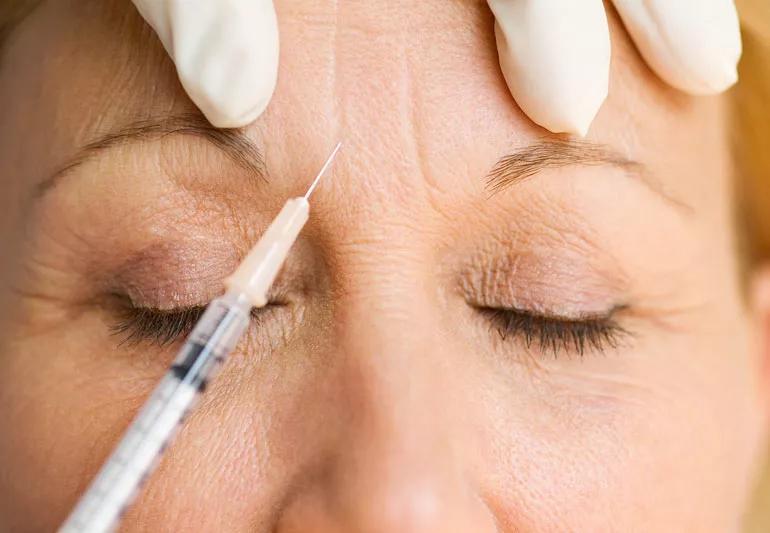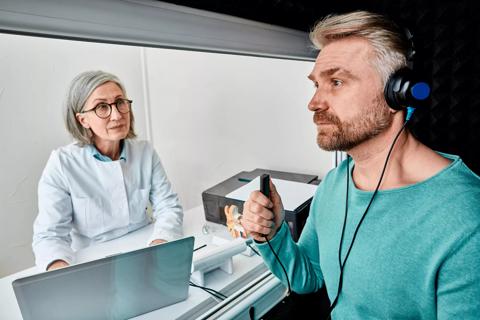Advertisement
And find out why it's not just for media darlings

We see it all the time — our favorite actors or reality television stars getting nipped, tucked, tightened and brightened. While some might go to extremes, others end up with results that look quite natural and obtainable.
Advertisement
Cleveland Clinic is a non-profit academic medical center. Advertising on our site helps support our mission. We do not endorse non-Cleveland Clinic products or services. Policy
Some might be under the impression that plastic surgery is just for famous or very vain individuals. However, you might be surprised to find out that a lot of people are turning to it more and more.
According to the American Society of Plastic Surgeons, 18.1 million cosmetic procedures and 5.9 million reconstructive procedures were performed stateside in 2019. Of the 18.1 million cosmetic procedures, women accounted for 92% of them while men accounted for 8%. As for the age group that had the most cosmetic procedures last year, 40- to 50-year-olds obtained 49% of them.
So, if you’ve been considering plastic surgery and wondering if it’s safe to have a procedure done during the pandemic, keep reading to get some helpful insights from facial plastic and reconstructive surgeon Patrick Byrne, MD, MBA, and Chairman of Cleveland Clinic’s Head and Neck Institute.
With the pandemic keeping many of us out of the gym and the office, we’ve had a lot more time to focus on our self-perceived imperfections. We’re bumping up the home workouts or revamping our wardrobes. And with all of the video calls for work or to connect with family, we’ve had a number of opportunities to examine our faces or the other things that we might not like about our bodies. Some of us have even been motivated to get a little extra help with those areas.
Advertisement
“A great number of people now spend quite a bit of time looking at themselves on computer screens. Often, they are seeing themselves at unfavorable viewing angles from their laptop computer cameras,” says Dr. Byrne. This is one reason why there has been more interest in cosmetic procedures. The other — downtime is less of an issue when you’re working from home.
“Another reason for the increasing demand is related to downtime. Historically, patients have required some period of time to stay home from work after having a procedure done. This may range from just a day or two for some in-office procedures, versus up to a few weeks after something like a facelift. This dynamic has changed with the pandemic. People are not only working from home, but they are routinely wearing masks in public. So these two factors make it much easier to undergo a facial plastic surgery procedure of some sort and to quickly integrate back into their routines,” says Dr. Byrne.
He adds that office procedures such as injectable fillers and neuromodulators (injectables that help relax muscles and release wrinkles) have become quite popular during the pandemic. There also has been an increased demand for facial resurfacing, rhinoplasty and facelifts.
While cosmetic procedures have been trending, Dr. Byrne says more functional procedures that are semi elective in nature have declined for now. This includes nasal surgeries that are performed to help with breathing and surgeries that help manage certain types of skin cancers.
“There’s certainly some concern out there about the risks of getting exposed to COVID-19 by having a procedure. However, we feel confident that the safety measures we have in place should provide a very strong degree of confidence that one can receive a full range of healthcare in a safe manner. I encourage people to get the treatment they want or the advice that they need. What’s really nice about this current model is that it has become so much easier to receive many healthcare services virtually.”
Dr. Byrne stresses that despite the pandemic, it is still very safe to have plastic surgery whether it be cosmetic or reconstructive.
He explains.
Advertisement
“First of all, we follow very strict social distancing measures. If you imagine the level of rigor and adherence to the guidance from top healthcare authorities, reputable clinics and hospitals really follow these rules. So we screen people, we make sure we are all wearing masks, we wash our hands thoroughly and frequently and we clean all surfaces that could be an avenue for transmission. In addition, we actually test patients prior to any elective procedures. If they test positive for COVID-19, we postpone their procedures. For these reasons, we believe one of the safest places in any community is a clinical care setting.”
While it may come as a relief to see frown lines disappear or saggy skin tight and smooth again, Dr. Byrne says that ultimately, a successful procedure comes down to having realistic expectations.
“Aesthetic surgery, particularly facial plastic surgery, can be a very powerful means to help people feel more confident, vibrant, comfortable around others — and it can improve one’s self-esteem. There is abundant evidence for this. At the same time, it is a big decision so it is important to truly screen patients well. Aesthetic surgery is no magic bullet. That’s why surgeons spend quite a bit of time exploring patients’ motives, assessing their emotional and psychological states to determine if it’s wise to proceed and counseling them about what can realistically be achieved. If a patient has unrealistic expectations or is struggling with a number of psychological challenges, cosmetic surgery is not the answer.”
Advertisement
Learn more about our editorial process.
Advertisement

The medication is ineffective and — in the case of animal ivermectin — potentially dangerous

Topical treatments — and even some cosmetic procedures — may help reduce the appearance of this crinkled-paper look

Updated vaccinations are recommended to better protect against the evolving virus

Enteroviruses are often to blame for summer colds, leading to a runny nose, sore throat and digestive symptoms

Redness, swelling, itching and rash can happen when your body’s immune system reacts to the vaccine injection

Studies suggest 1 in 5 people infected with the coronavirus never develop symptoms

An increased risk of blood clots can last for nearly a year after a COVID-19 diagnosis

COVID-19 may be associated with tinnitus, but research is still ongoing

Focus on your body’s metabolic set point by eating healthy foods, making exercise a part of your routine and reducing stress

PFAS chemicals may make life easier — but they aren’t always so easy on the human body

While there’s little risk in trying this hair care treatment, there isn’t much science to back up the claims